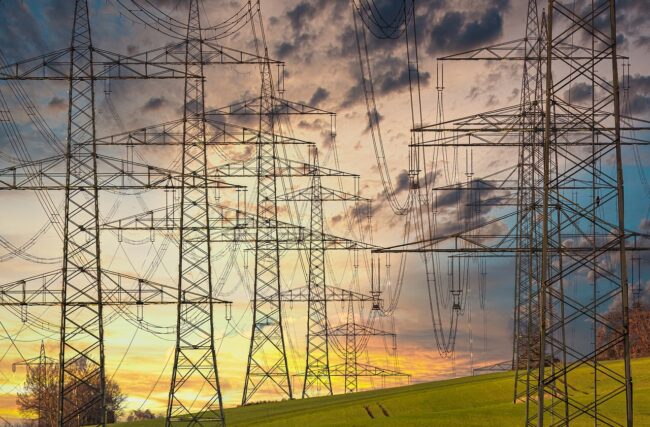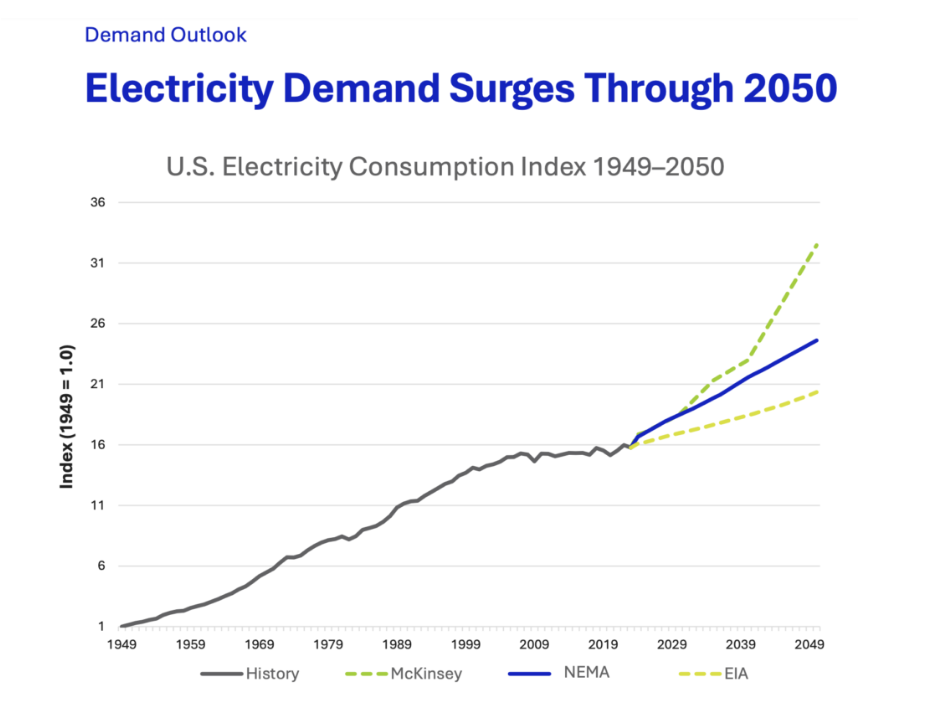

The National Electrical Manufacturers Association (NEMA) has released a comprehensive study titled “A Reliable Grid for an Electric Future,” offering a detailed look at the challenges and opportunities related to power grid reliability amid rising energy demands over the next 25 years.
According to the report, electricity demand is expected to grow by approximately 2% annually through 2050, amounting to a 50% overall increase. This surge will be primarily driven by the rapid expansion of data centers and the electrification of transportation—especially electric vehicles. Data center energy demand is projected to grow by 300%, while e-mobility could see an astonishing 9,000% increase over time.

Today’s Grid Must Evolve to Meet Tomorrow’s Energy Needs
While technology is advancing, the current U.S. electrical infrastructure was not built to handle this pace of growth. Modernizing the power grid has become a strategic priority to ensure reliability and resilience.
The NEMA study outlines several key technologies that can support this transition:
- Advanced power cables that can double energy transmission capacity
- Dynamic line rating, which adjusts capacity based on favorable weather conditions
- Smart grid technologies such as digital substations and advanced metering for real-time demand response
- Energy-efficient building systems to reduce consumption
- Behind-the-meter generation and microgrids to increase local energy resilience
Strategic Actions to Enable Grid Modernization
In addition to technical upgrades, the report highlights important policy and investment actions, including:
- Reforming permitting processes for infrastructure projects
- Integrating affordable, clean natural gas to maintain 24/7 reliability
- Unlocking public and private funding for grid upgrades
- Creating stable policy frameworks to encourage long-term technology investments
Industry-Wide Collaboration Will Be Key
Industry leaders emphasize that collaboration across manufacturers, distributors, contractors, and public officials will be essential to overcome grid modernization challenges. Efforts are already underway to streamline communication, reduce lead times, and optimize the entire electrical supply chain.
Another critical concern is the shortage of skilled labor. Developing a qualified workforce is now a top priority to ensure successful implementation of future-ready solutions.
Building a Resilient Grid for a High-Demand Future
As energy-intensive technologies such as artificial intelligence grow, and extreme weather events become more common, building a resilient grid is no longer optional—it’s vital. The study urges swift, collaborative action to strengthen the grid and protect critical infrastructure.
The full report, “A Reliable Grid for an Electric Future,” is available at www.makeitelectric.org.



